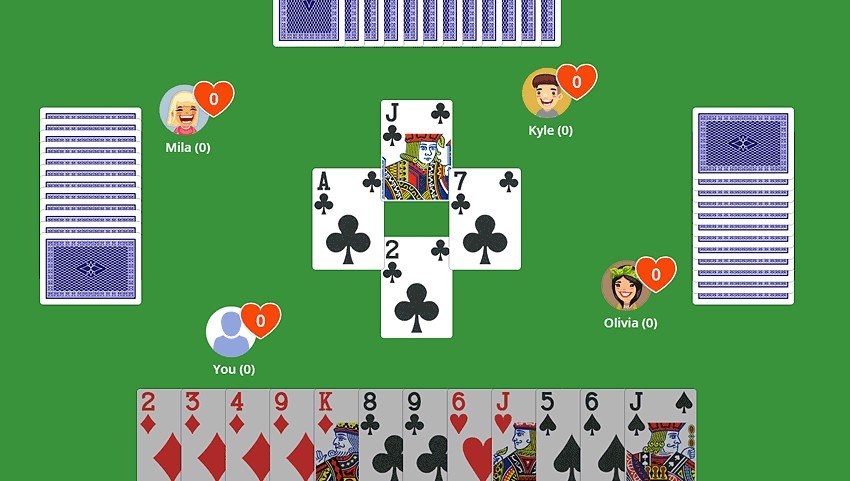In the vast world of card games, trick-taking games stand as timeless classics. While many of us are enchanted by modern collectible card games and digital adaptations, the charm of traditional trick-taking games remains undeniable. The rules may differ, but the essence remains the same: the anticipation, the strategy, and the satisfaction of a trick well-taken. Here, we journey through five iconic trick-taking games that have entertained generations.
Hearts
Starting with a game that's synonymous with card-playing camaraderie, the Hearts card game has roots that trace back to the 18th century. The objective? To avoid certain cards that carry penalty points. The player with the lowest score at the end wins. An interesting twist? The infamous "Shooting the Moon" strategy where a player can opt to win all the penalty cards, thereby penalizing others. It's a high-risk, high-reward move, and when executed correctly, leaves opponents in awe.
Spades
The name 'Spades' isn't just for show. In this game, Spades are always the trump suit, meaning they outrank all other cards. Originating in the 1930s in the United States, Spades requires players to predict the number of tricks they will take in each round. Bid too low, and you miss out on points; bid too high, and you're penalized. With its blend of prediction and strategy, Spades remains a favorite among card enthusiasts.
Euchre
Hailing from Europe but immensely popular in the United States, particularly in the Midwest, Euchre is a game of strategy and wits. Played with just 24, 28, or 32 cards, the game is all about naming the trump and then winning the maximum number of tricks. The thrill of Euchre lies in its use of a "benny" or top trump card and the strategy around naming a suit as the trump. To add spice, a player can 'go it alone' if they believe they can take all five tricks without their partner's help.
Oh Hell
The devilishly fun Oh Hell (also known as "Oh Pshaw" or "Estimation") is all about accurate prediction. With each round, the number of cards dealt changes, and players must predict precisely how many tricks they will take. What's the catch? With the changing number of cards, your strategy must adapt. A misjudgment might be excusable in the first few rounds, but as the game progresses, the stakes get higher.
Pitch
Also known as "Setback", Pitch is a game of capturing cards with a point value. Here, the objective is not just about taking tricks but ensuring they contain valuable cards. The strategy revolves around deciding which cards to play to win points and deny them to the opponent. With its multiple variations, Pitch offers a layered gameplay experience, as players navigate their way through bids, points, and the ever-crucial trump suit.
Conclusion:
The world of trick-taking games is vast and rich in history. These five games – Hearts, Spades, Euchre, Oh Hell, and Pitch – offer a glimpse into the depth and breadth of this genre. They have stood the test of time not just because they are entertaining but because they challenge our strategic thinking, prediction skills, and adaptability.
While the rules, cards, and objectives may differ, each game echoes a universal truth about human nature: our innate desire to outthink, outplay, and outwit our opponents. As the hands are dealt and the game unfolds, these classics remind us that while winning is sweet, the journey and the strategies employed are what truly captivate our hearts and minds.
So, the next time you're in the mood for some card-based excitement, why not revisit one of these timeless gems? Whether you're a seasoned pro or a curious novice, the world of trick-taking games promises endless hours of strategy, suspense, and satisfaction.










— Комментарии 0
, Реакции 1
Прокомментируйте первым